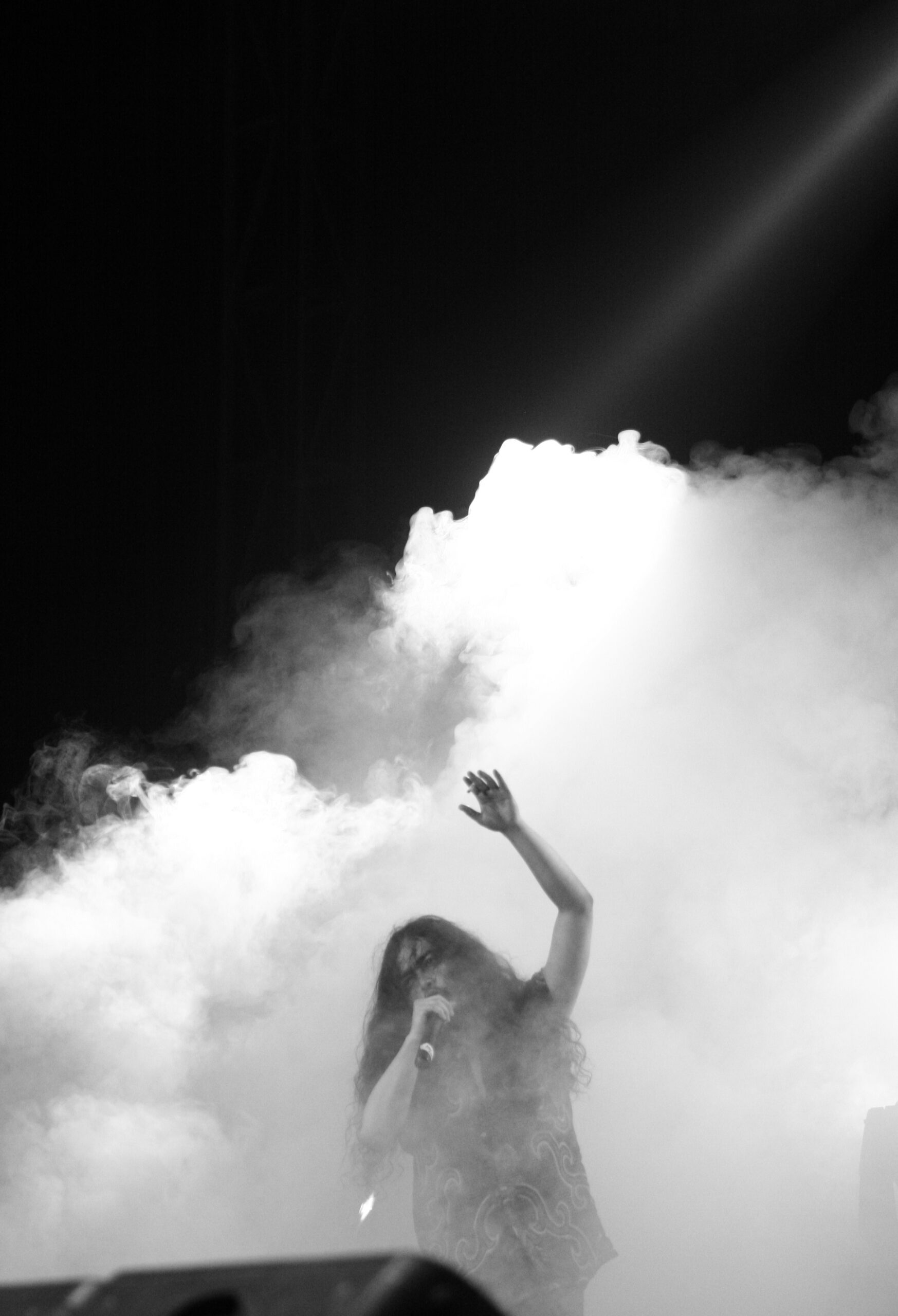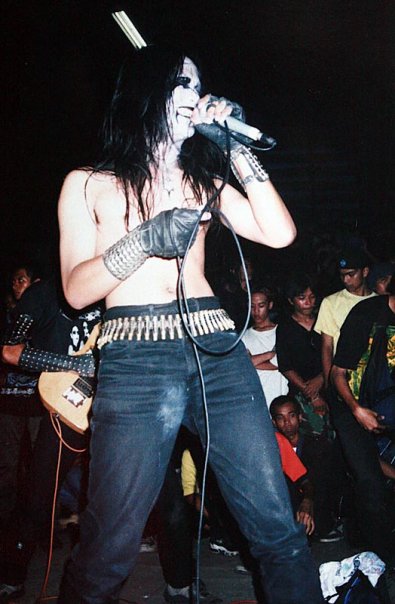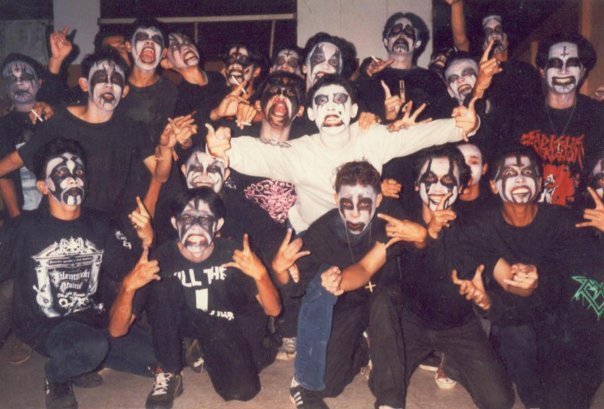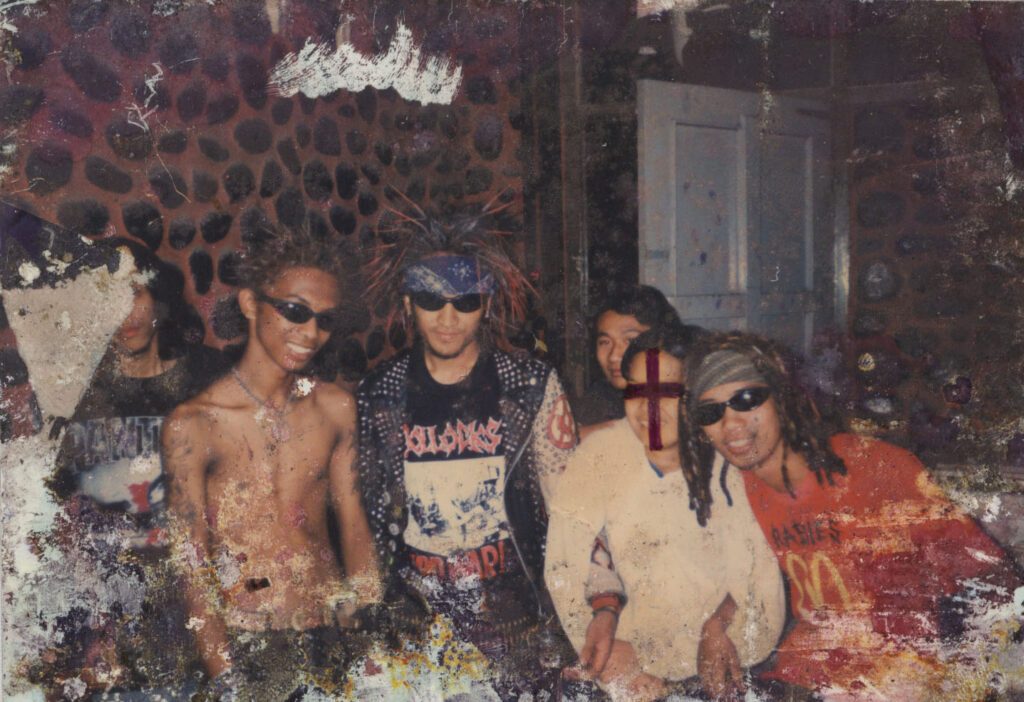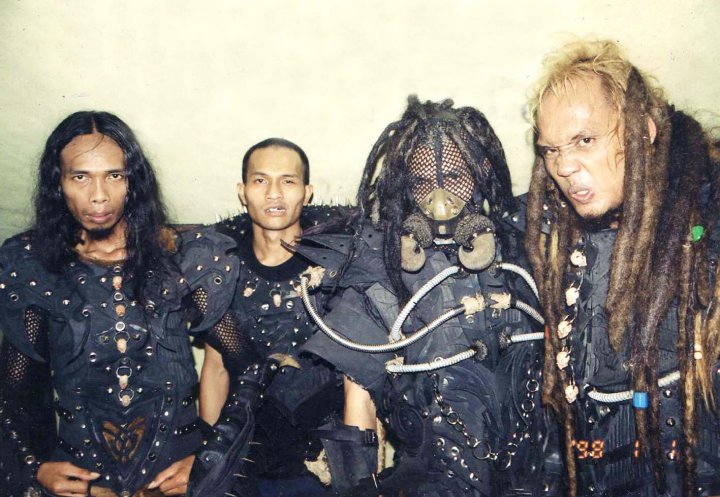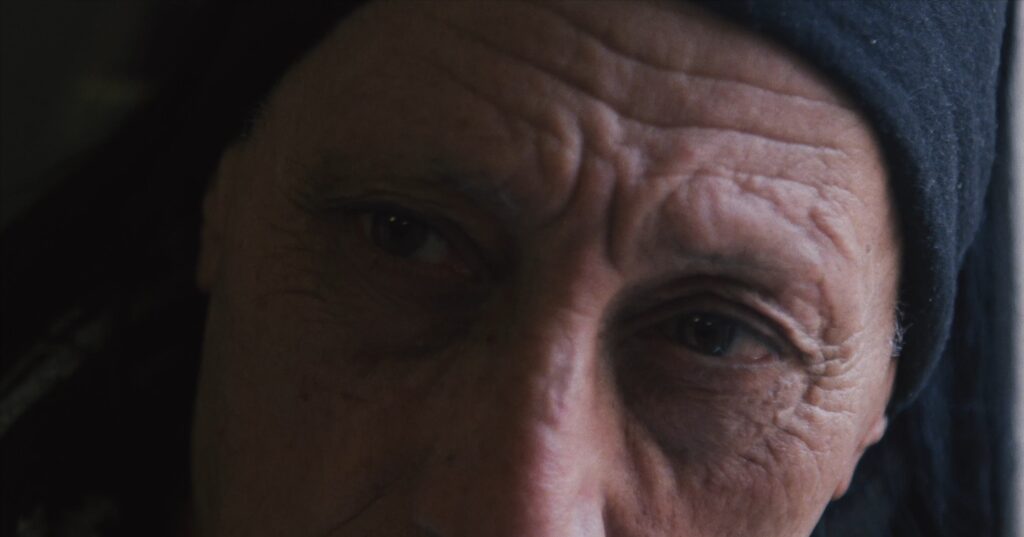UJUNGBERUNG REBELS

There is a district on the outskirts of Bandung where traditional arts and heavy metal have collided since the 1990s—giving rise to pioneering bands, an underground zine scene, and DIY festivals that reshaped Indonesia’s music landscape.
Ujungberung is a sub-district in the easternmost part of Bandung. The area is located at an altitude of 668 metres above sea level, bordered by the Cibiru Sub-district to the East, the Arcamanik Sub-district to the West and South, and the Cilengkrang sub-district of Bandung Regency to the North. With an area of 1,035.411 hectares, Ujungberung has 67.144 inhabitants. Since ancient times, it has been renowned for its traditional arts, particularly benjang, pencak silat, angklung, bengberokan, and kacapi suling.
For as long as one can remember, the highly exploratory spirit of the district’s youth culture has always exposed the territory to all artistic influences. Among this creative turmoil, one of the genres that has flourished in Ujungberung alongside traditional arts is undoubtedly metal music.
Ujungberung 1990
It is still unclear when metal first arrived in Ujungberung. Yet, since Guns N' Roses, Metallica, and Bon Jovi boomed in Indonesia, despite their limited conditions, a handful of young people in Ujungberung formed bands to play the increasingly popular bands’ covers. Among the Ujungberung Rebels’ community, Kang Koeple (Burgerkill’s producer) and Kang Bey (Jasad) represent Ujungberung’s earliest rock musicians. From the mid-1980s to the early 1990s, musicians jammed covers by Deep Purple, Led Zeppelin, Queen, and Iron Maiden, alongside original music production.
Festival culture thus became the protagonist of this Bandung era; bands competed in all sorts of music festivals, which awarded the winner with a discographic production, inspiring other musicians to follow the same path.
This sonic awe inspired the younger generation of Kang Koeple and Kang Bey to form bands; this is how Orthodox, Funeral, and Necromacy were born in the Western part of Ujungberung, Sukaasih. Meanwhile, on the East side, specifically in the Cilengkrang I area of Tirtawening, Jasad was forming. The first time I saw them live was at a rock festival in Ujungberung Square during my junior high school's second grade. I still remember how the square was filled with long-haired youths dressed in all black; the loud noise dominated the atmosphere that afternoon.
What’s unique is that the introduction of these pioneers began with a trend among young people at the time: playing brik-brikan, an improvised, DIY music style using found or homemade instruments. Dinan (Necromancy) first met Uwo and Agus (Funeral) through brik-brikan jamming sessions. They discussed music, exchanged information, and eventually formed a band while building their community. Besides brik-brikan, schoolmates also played a role in band formation, such as Toxic, the precursor of Forgotten.
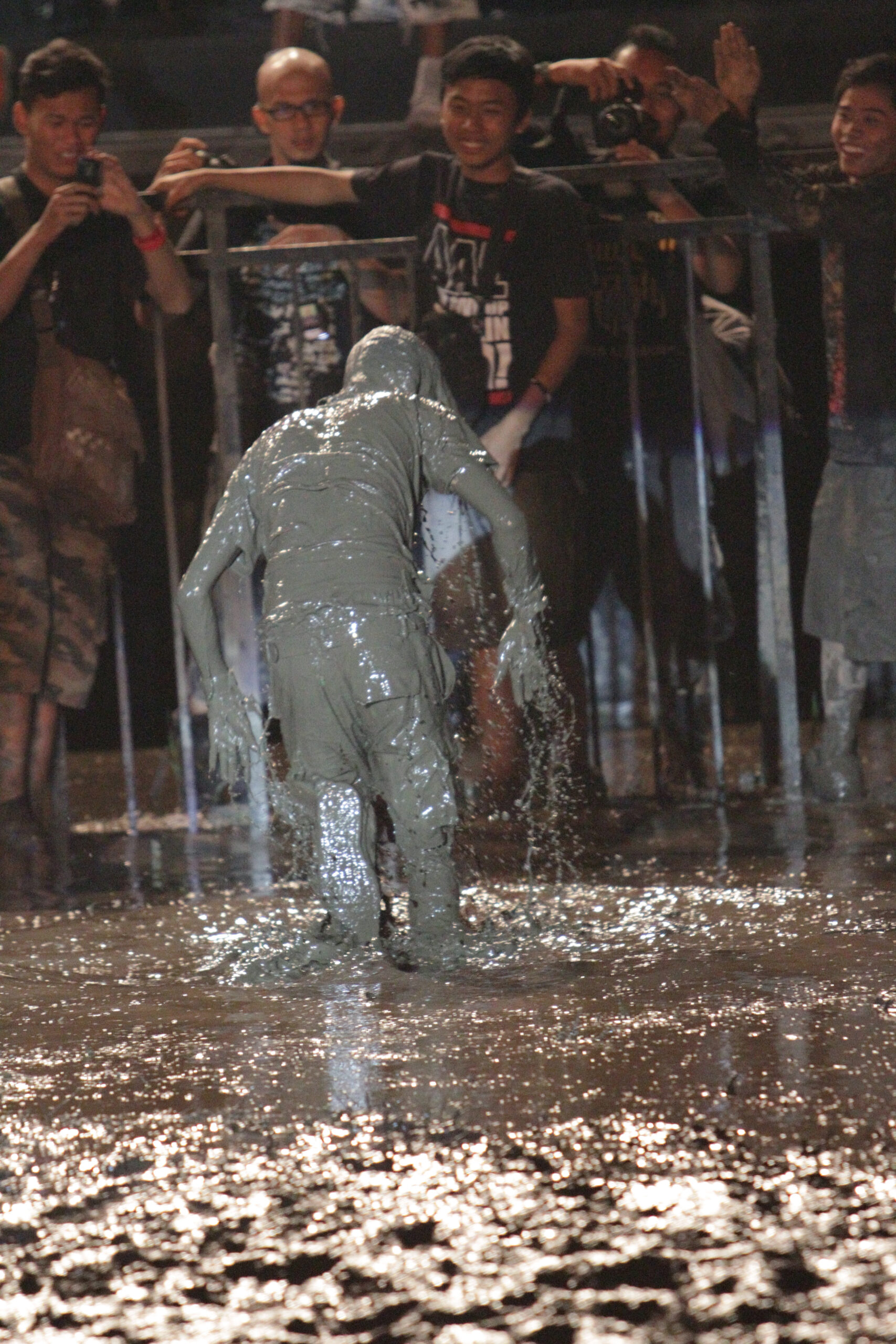
During Bandung’s golden age of metal music, a vibrant community emerged around the independent DIY radio station Radio Salam Rama Dwihasta, which was founded in the Sukaasih area in 1992. Radio Salam was an ordinary radio station, but it had a special programme dedicated to metal/death metal/grindcore music called Bedebah airing every afternoon. While the metal scene was dominated by heavy metal, Salam Rama Dwihasta’s Bedebah was already blasting out Napalm Death, Carcass, Terrorrizer, and Morbid Angel.
A Groundbreaking Generation: Homeless Crew and Ujungberung Rebels
The unfriendly culture of festivals made a handful of young musicians uncomfortable. At festivals, bands had to meet several requirements, including performing specific songs and adhering to certain behavioural standards. They were expected to present a consistent image and put on a sweet face to win over sponsors or producers. This stifled the spirit of rock and metal expression. With this new awareness, a cluster of young artists from Ujungberung took their music to the streets.
By the end of 1993, a new force had emerged from Ujungberung: Studio Palapa, a music rehearsal space owned and operated by the local community members. This studio became a crucible for Ujungberung’s bands, fostering major projects, tight-knit crews, and exceptional musicians. Studio Palapa also produced Indonesia’s first metal cassette releases through its imprint, Palapa Records. The bands recorded songs at their own expense, distributed them independently, and embodied a true DIY spirit. Of the ten independent bands in Indonesia featured in the youth magazine Majalah Hai in 1995, three hailed from Ujungberung: Sonic Torment, Jasad, and Sacrilegious.
By the end of 1993, a new formation had emerged from Ujungberung: Studio Palapa
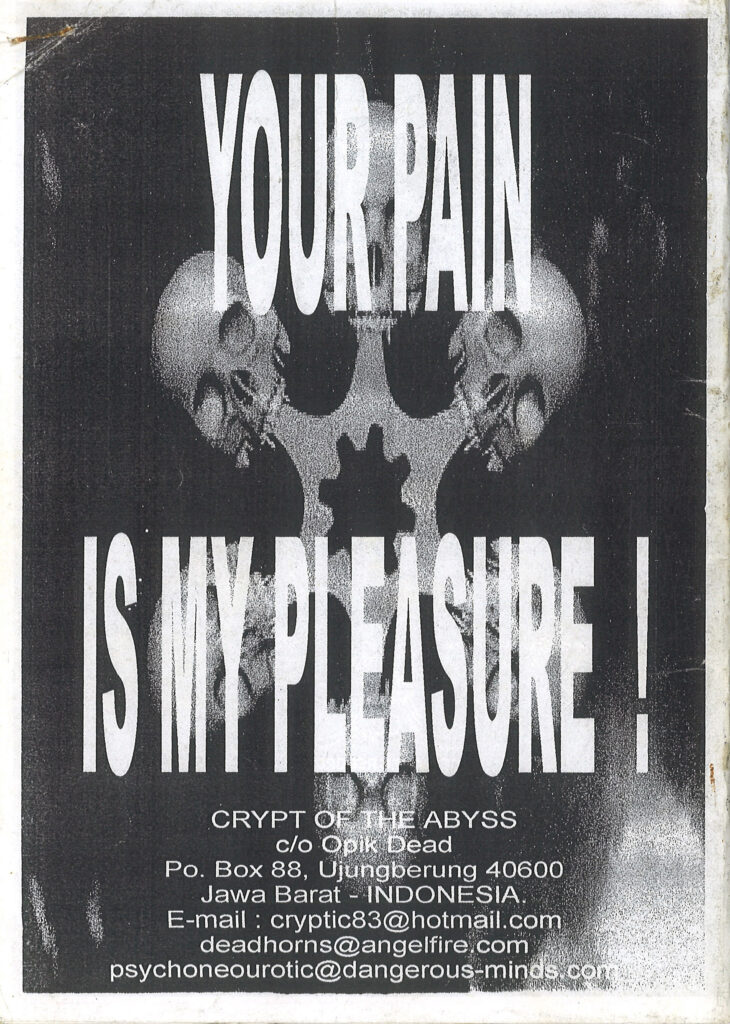
Meanwhile, in 1995, a group of Ujungberung metalheads formed an organisation called Extreme Noise Grinding (ENG), the precursor to all the Ujungberung Rebels as they exist today. ENG was founded as a creative outlet for Ujungberung’s youth, with the initial goal of creating a media platform for sharing among underground metal communities. This platform took the form of a zine titled Revograms, often cited as the first of its kind in both Indonesia’s underground and independent music scenes. Conceived by Dinan of Palapa and ENG, Revograms was brought to life by the Revograms Editorial Team—comprising Ivan, Kimung, Yayat, Dandan, Sule, and Gatot. ENG’s next major initiative was the organisation of the Bandung Berisik Demo Tour, later known as Bandung Berisik I. The event featured performances by fifteen Ujungberung bands, along with the special guest Insanity from Jakarta. To this day, Bandung Berisik remains a cornerstone of the Ujungberung metal scene, alongside three other signature events: Death Fest, Rottrevore Death Fest, and Rebel Fest.
After Bandung Berisik, the movement continued with plans for a compilation album showcasing Ujungberung bands as a statement of the community’s existence. The compilation featured sixteen Ujungberung metal bands and was titled Ujungberung Rebels. Released in 1998 by Musica under the name Independent Rebels, the album had a transaction value of 14 million. Despite the album’s official title, the name Ujungberung Rebels endured, becoming the identity of the underground metal community in Ujungberung. Alongside this, the name Homeless Crew emerged, reflecting the lifestyle of Ujungberung musicians who lived on the streets and embraced a bohemian way of life.
The profits from the Independent Rebels compilation were used as capital to establish a distro called Rebellion, which showcased the creative works of Ujungberung’s youth and the wider Indonesian community. Yayat acted as the producer for this distro. It is said that Rebellion was Indonesia’s second distro after Reverse Outfit. Later, Rebellion relocated and collaborated with Pieces Studio, owned by Dandan. This partnership came about after Kang Memet decided to sell the band’s equipment from Studio Palapa in February 1997.
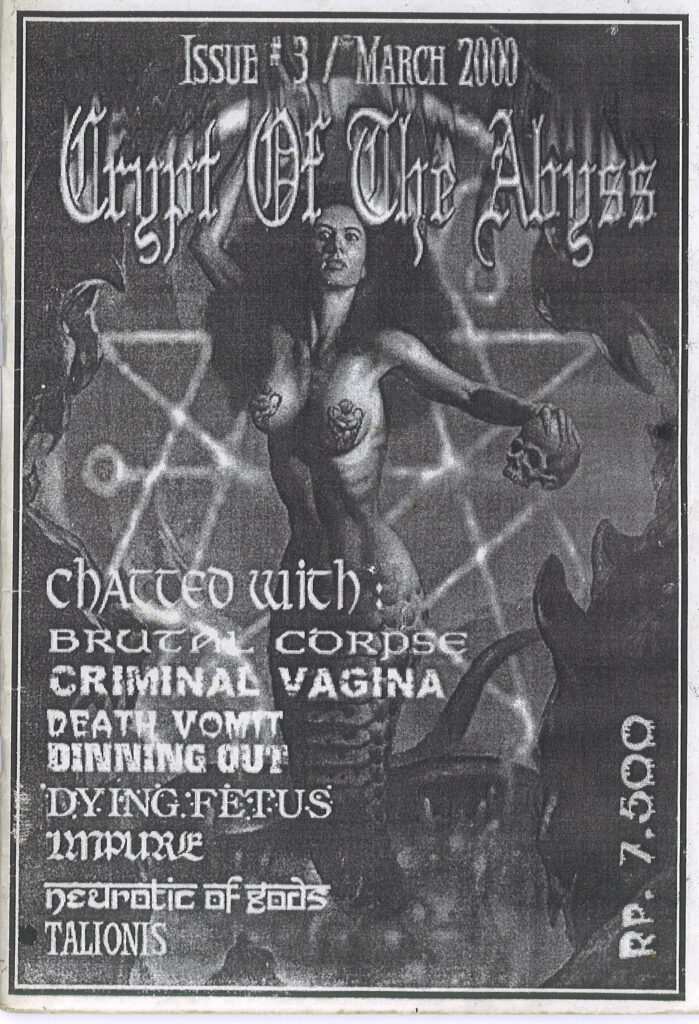
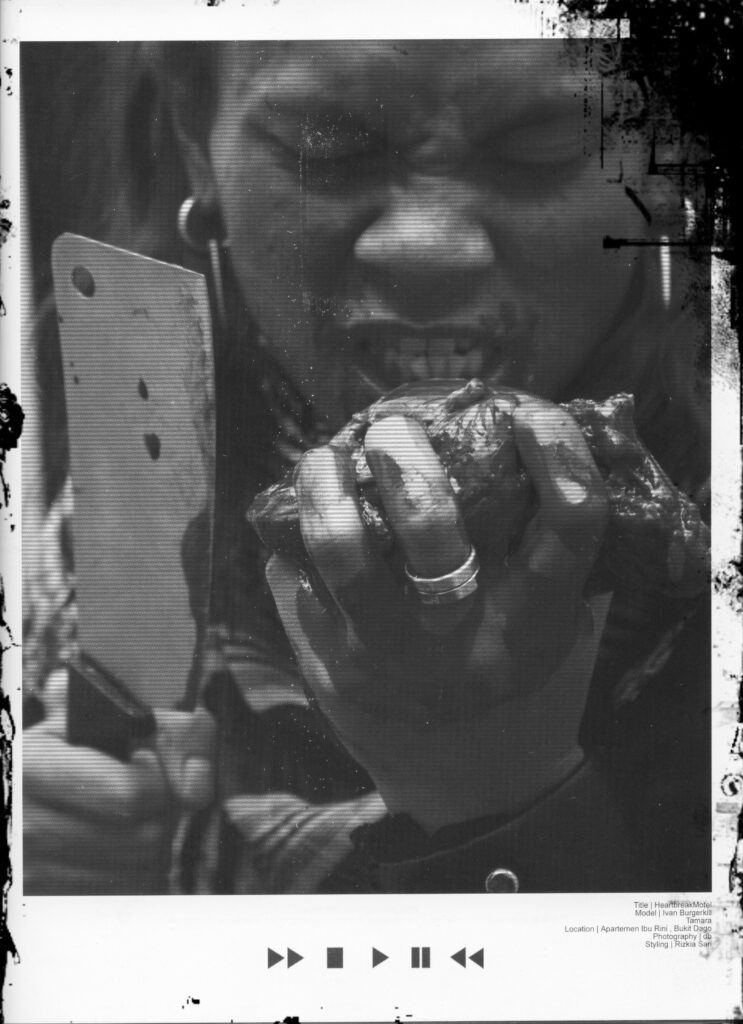
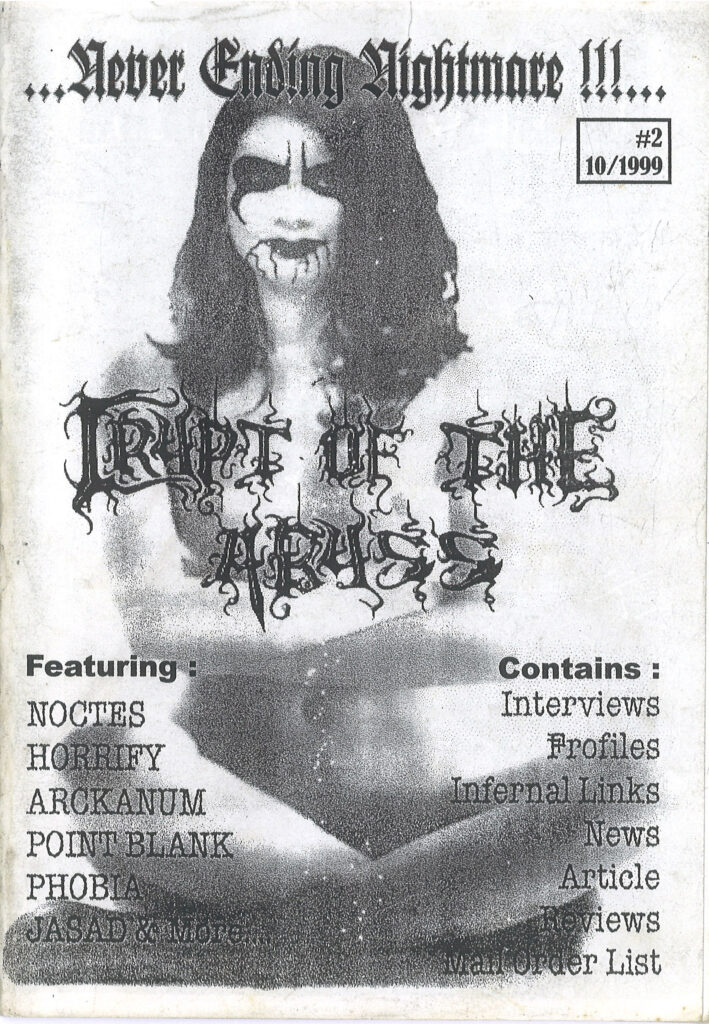
While cassette releases were booming, so too were zines. Following Revogram, the second zine to emerge was Ujungberung Update, created by Addy Gembel, Amenk, and Sule. They popularised a trend known as “Gogon,” short for Gosip-gosip Underground (Underground Gossip). After Ujungberung Update, several other zines appeared: Crypt from the Abyss, edited by Opick Dead, the guitarist of Sacrilegious; Loud n’ Freaks, edited by Toto, the drummer of Burgerkill; and The Evening Sun, edited by Dandan, the drummer of Jasad. In the 2000s, Toto collaborated with Eben to produce NuNoise, a progressive zine covering the latest music movements. Another notable publication that continues to thrive today is Rottrevore, founded by Rio and Ferly, the guitarist of Jasad, which served as a propaganda platform for metal music. Over time, Rottrevore evolved into a metal-focused record label. Though owned by Jakarta-based grinder Rio, it is managed by members of the Ujungberung Rebels.
Rebels Rising: Battles, Bands, and Breakthroughs
Baby Riots is the name given by the Ujungberung Rebels to the combat forces formed by Butchex, frontman of the bands The Cruels and Mesin Tempur. As the Ujungberung Rebels rapidly grew in both quality and quantity, conflicts and friction with the surrounding community began to arise. Ujungberung—with its industrial culture and ambiguous status as neither fully village nor city—gave rise to various communities often referred to as “thugs.” These groups were not pleased to see the Ujungberung kids roaming the streets with such determination, from Ujungberung Market to Jl. Hospital. Clashes with the preman started as minor altercations but soon escalated into violent confrontations. Faced with this increasing hostility, the Ujungberung Rebels decided to form their own force equipped with powerful combat machines. Thus, Baby Riots was born. The Baby Riots were not merely combat machines. They also formed bands and produced numerous creative works. Among them were punk bands guided by The Cruels, alongside young metalheads whose passion burned fiercely. Their musical talent and rebellious spirit were unmistakable.
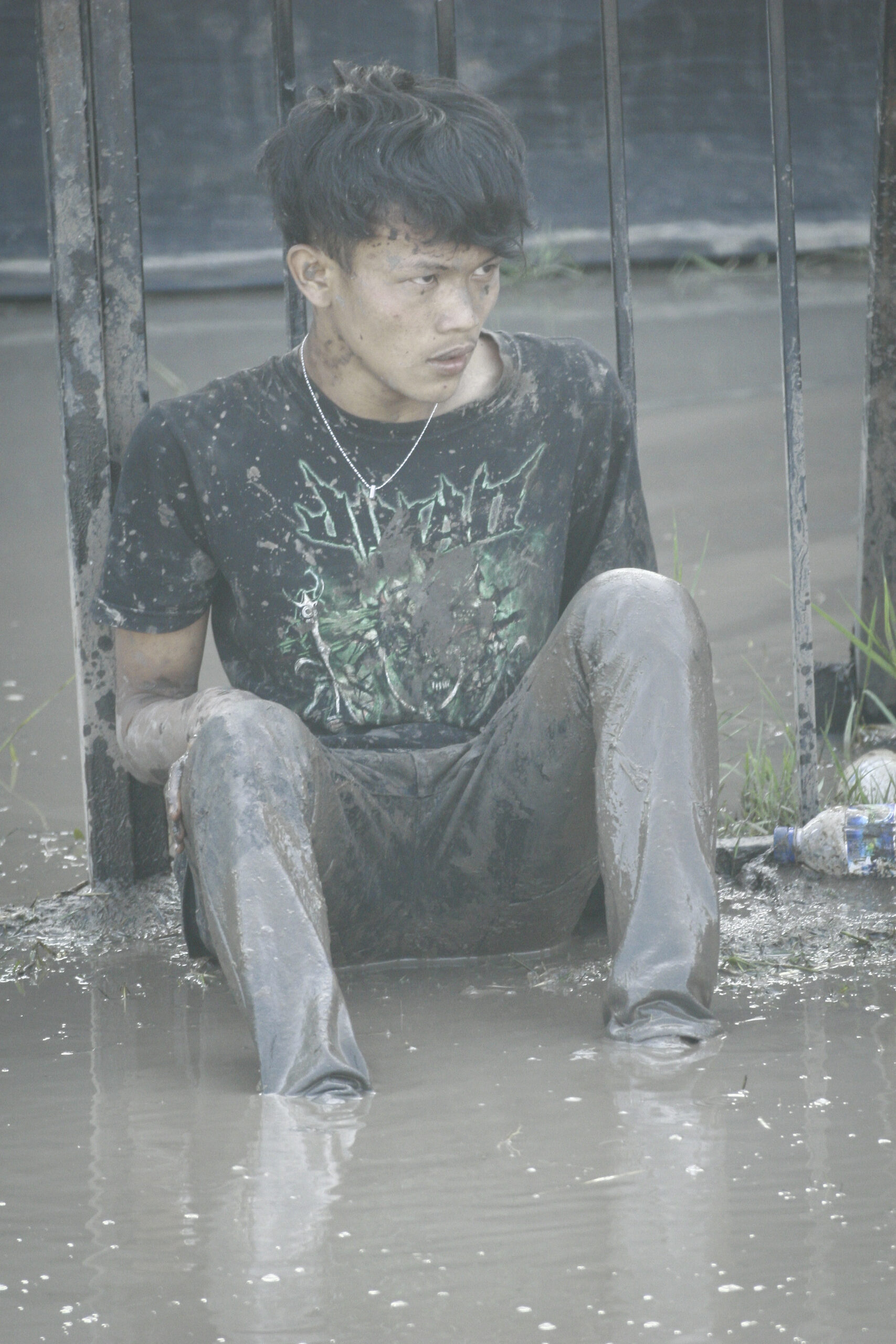
Faced with this increasing hostility, the Ujungberung Rebels decided to form their own front
Their musicality, along with their various achievements, further solidified the existence of the Ujungberung Rebels. Numerous recordings emerged from this community, shaping the dynamics of Indonesia’s underground metal movement. Some bands even gained international exposure—Jasad’s work was released in the US, while Forgotten reached audiences in Germany and Eastern Europe. Another phenomenal achievement came from Burgerkill. The band secured a six-album contract with major label Sony Music Indonesia and won the Best Metal Production award at the 2004 Indonesian Music Awards for their album Berkarat. However, Burgerkill eventually left the label after feeling they could no longer move forward together. This separation led to the birth of Revolt! Records, which released Burgerkill’s third album, Beyond Coma and Despair. This album marked a milestone in Burgerkill’s career and deeply resonated with the Ujungberung Rebels community, earning numerous positive reviews and awards. Notably, Beyond Coma and Despair was named one of the 150 greatest Indonesian albums of all time by Rolling Stone magazine. And Burgerkill truly deserved this recognition, having previously paid an unimaginably high price: the death of their vocalist, Scumbag Begundal Hardcore Ugal-ugalan.
The strength of the Ujungberung musicians in upholding their principles has kept this community alive and dynamic to this day. This idealism is reflected in the music events they organise themselves, which have gradually opened the door for musicians from outside Ujungberung to engage with the Rebels’ movement. Besides the legendary Bandung Berisik event, three distinctive festivals have become staples of the Ujungberung Rebels: Rebel Fest, Rottrevore Death Fest, and Death Fest. What is interesting about these events is their role as platforms for the regeneration of the Ujungberung Rebels community. Additionally, the youth often incorporate traditional arts into these festivals, using them as opening or closing acts. One such example is the performance of debus—a traditional martial art form—by the Ujungberung youth at Death Fest II in 2007. Perhaps the most impressive achievement of the Ujungberung youth was their ability to attract 25,000 attendees to Bandung Berisik IV at Persib Stadium in Bandung in 2004. This milestone was recognised by Time Asia magazine as breaking the record for the largest underground music event in Asia.
The Creative Economy of the Ujungberung Rebels
The dynamics of the Ujungberung Rebels movement continue to grow rapidly. Today, at least three creative economy sectors are developing within the community: fashion, music recording, and literature. Among these, the fashion industry is the most vibrant. Several prominent fashion ventures have been founded by the key figures in the Ujungberung Rebels, including Media Graphic and Chronic Rock distro by Eben, Distribute by Pey, Reek by Ferly and Man, Melted by Amenk and Andris, CV Mus by Mbie, and Scumbag Premium Throath, which is now managed by Erick following Ivan’s passing.
In the recording sector, two highly active labels have emerged from Ujungberung: Rottrevore Records, run by Rio and Ferly, and Revolt! Records, led by Eben. Rottrevore also extends into the literary realm with Rottrevore Magazine, a publication dedicated to heavy metal. Another prominent figure in the literary scene is Iit with his bookstore Omuniuum, and Kimung, known for his zine MinorBacaanKecil and his publishing house Minor Books, which published Ivan’s biography, Myself: Scumbag Beyond Life and Death, part of the Ujungberung Rebels and Bandung Underground historical trilogy, establishing itself in the cultural legacy of the movement.
Of course, beyond these three core areas—fashion, recording, and literature—many other ventures have emerged. These include an internet café business run by Kudung, a music store, and a culinary hub. All of these efforts within the Ujungberung Rebels have created opportunities for economic advancement, at least within the community, and perhaps even toward paying off Indonesia's massive national debt.
These achievements were no accident—they stemmed from unwavering consistency and a steadfast commitment to ideals, sharpened by a creative drive to keep pushing forward. At the core of it all lies a steadfast commitment to principle: staying on track, unafraid of change, and recognising that change is often superficial. True adaptation requires depth, not surrendering to surface-level euphoria.
All these accomplishments must also be nurtured with positive synergy across creative sectors, ensuring continued growth and, in turn, contributing positively to the wider society. A business and cultural development hub in Ujungberung should accommodate aspirations and creative outputs, striving for the highest standards. At a minimum, it should include a concert hall, a youth centre, and a facility dedicated to documenting and researching social and cultural development. Daydreaming? Absolutely not. This is the vision. This is staying on course!
